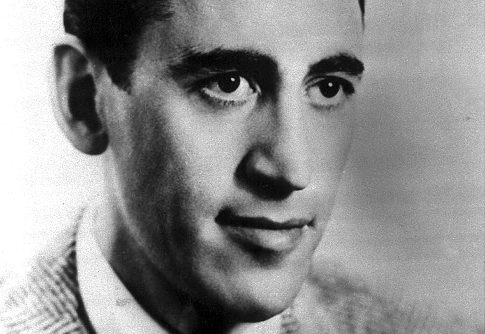The first two stills below come from a couple of French films dating from 1907 and 1909, respectively, which were shown in the tenth and final program in “From the Deep,” a wonderful program at Oberhausen International Short Film Festival that’s briefly described here. The first, Le Cochon danseur (“The Dancing Pig”) is, according to Luis Buñuel, the first film he ever saw, when he was about eight years old; the second, a wild and hilarious farce largely staged on the streets of Paris, is Un Monsieur qui a mangé du taureau (“A Man Who Ate Bull Meat”). Such is the scarcity of all these films that practically none of the stills shown here, with the possible exception of the first, can do them any sort of justice. [5/23: This article has appeared in the Turkish film monthly Altyazi, and my thanks to Gözde Onaran, my fellow juror at Oberhausen, who translated it into Turkish, for furnishing me with the still below from Médor au téléphone.] — J.R.


The time is circa noon on May 2, outside the Lichtberg Cinema at the Oberhausen Short Film Festival. Olaf Möller, one of the programmers, and an old friend — a critic who tends to favor the critically overlooked in relation to the critically overexposed, preferring Verhoven to Hitchcock, Kuleshov to Sternberg, and Saless to Kiarostami — is explaining to me why he also tends to prefer Raoul Walsh to Howard Hawks For him, the terrain of Hawks is more limited, having more to do with the cinema itself than with the world. Read more
Originally posted on January 29, 2010. — J.R.

I never met J. D. Salinger, but I may be one of the few people who can say that I saw him in the flesh when he attended my high school graduation in the spring of 1961, seated a few rows behind me — an event that came about because Wally Shawn, the son of the New Yorker editor William Shawn, was a classmate.
I can also report that I was visiting Wally in the Shawns’ Upper East Side apartment the day that Time magazine’s cover story on Salinger appeared, the following fall, around the same time that Franny and Zooey was published in book form. (The cover date was September 15, 1961.) Paradoxically, although Wally was the only one of my classmates at Putney who read my first (and never published) novel, Away From Here, written during my senior year, it would be incorrect to claim that I was a friend of his, at least in his mind, because he never gave me his unlisted phone number. He did, however, invite me to stop by his family homestead from time to time, on the chance that he might be in, and this was one of the times I did, most likely the last time. Read more
These are two films that I encountered recently quite by chance. I came across Mila Turajlic’s Cinema Komunisto (2010), a pithy and often humorous historical account of the postwar Yugoslav film industry, because the filmmaker herself sent me a copy last month; and I just now caught up with Maximillian Schell’s My Sister Maria (2002) because my Viennese artist friend (and sometime Chicagoan) Roxane Legenstein contacted me about it just after the New Year, wondering why it hadn’t been better received in the U.S.

Let me try to answer Roxane’s query first. Just about everyone I know accepts the premise that fiction and its various trappings can be used as a legitimate vehicle in support of the truth, but there are few documentaries that test this premise quite as radically as Schell’s lovely and vibrant portrait of his aging sister, which goes even farther than Wim Wenders’ Lightning Over Water (1980), about the last days of Nicholas Ray. My Sister Maria includes many clips from Maria Schell’s acting career in both Europe and Hollywood, and some speculations about her recent mental condition as well as details about her running up so many debts that Maximillian had to sell a late Rothko painting in order to settle them all. Read more




